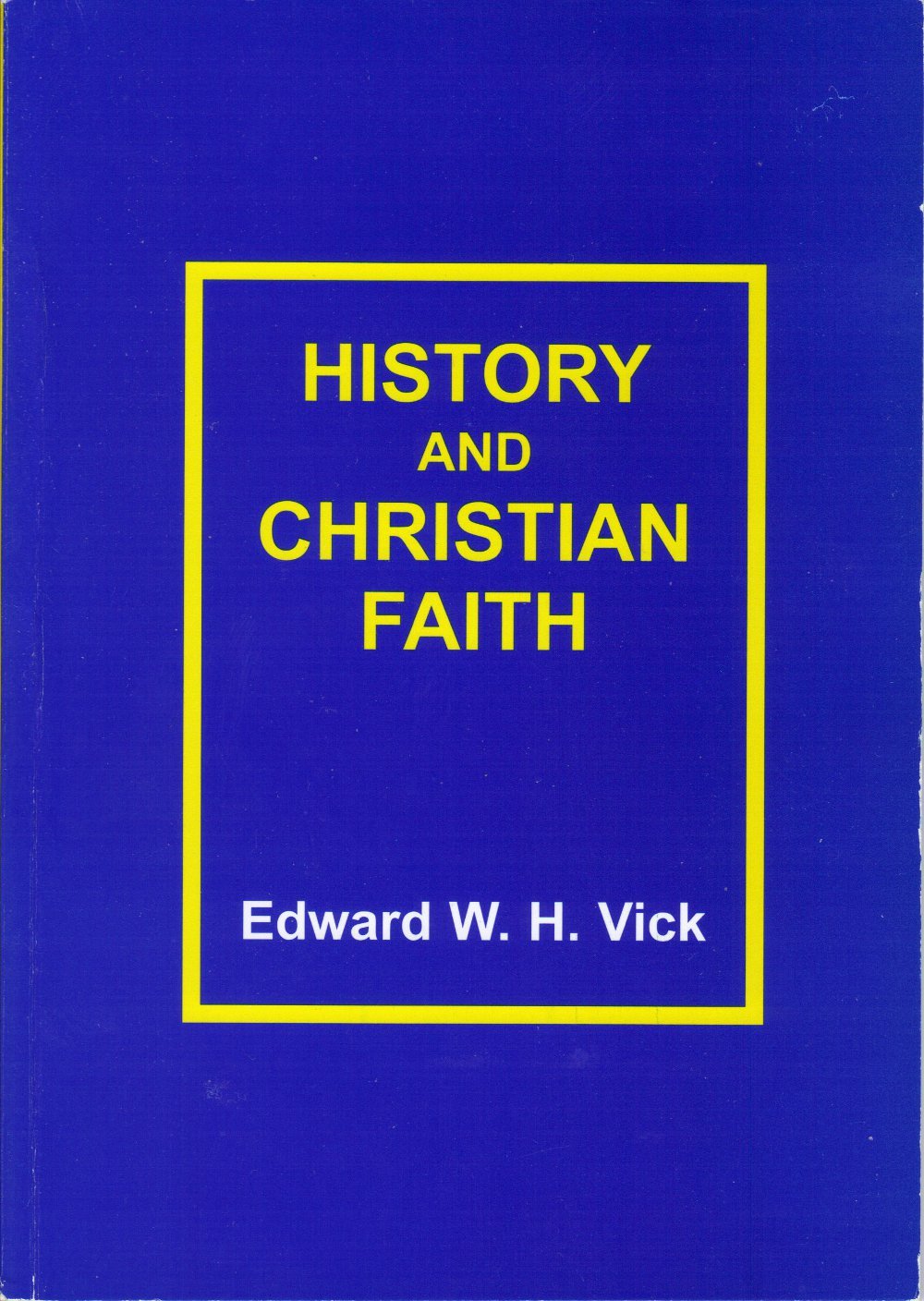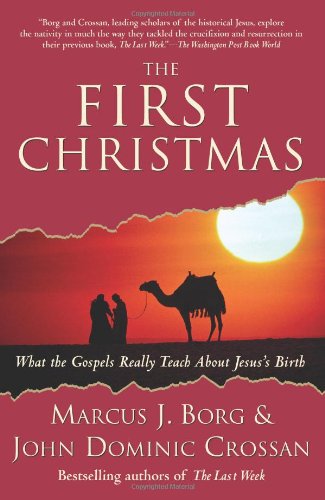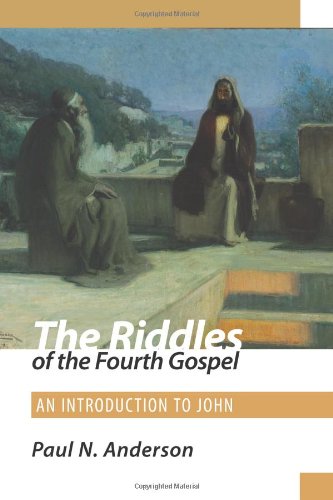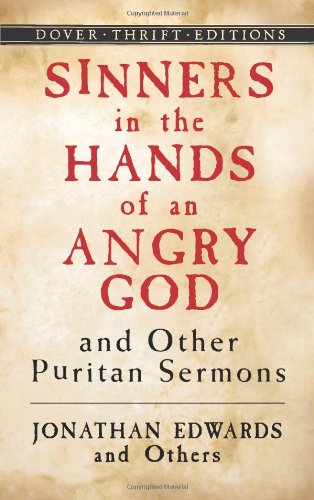Joshua 6:20, The Battle of Jericho
So the people shouted when the priests blew with the trumpets: and it came to pass, when the people heard the sound of the trumpet, and the people shouted with a great shout, that the wall fell down flat, so that the people went up into the city, every man straight before him, and they took the city.
//In perhaps the most famous conquest of the Israelites, Jericho fell in miraculous fashion around the year 1200 B.C. For six days, Joshua’s army marched around the city, parading the Ark of the Covenant and blowing their trumpets. On the seventh day, they trudged around the city seven more times, and as the trumpets blared one final time, the city walls came tumbling down.
This was the first battle Israel fought as it began its conquest of Canaan. The story goes that Israel destroyed every one of the enemy, both young and old, with all their animals, setting a precedence of utter genocide for battles yet to come. For this was the command of God, as they entered the promised land: [T]he LORD thy God shall deliver them before thee; thou shalt smite them, and utterly destroy them; thou shalt make no covenant with them, nor shew mercy unto them.
One wonders how Israel could honor such a heartless God? Had they learned nothing from 400 years of mistreatment in Egypt? Thankfully, the evidence argues against the biblical version. Archaeological data shows that the walls of Jericho were destroyed over 300 years before Joshua arrived. Jericho was first destroyed in about 2300 B.C., then rebuilt, and destroyed again by fire in the sixteenth century B.C. As archaeologist Bill Dever says, “if you want a miracle, here’s your miracle: Joshua destroyed a city that wasn’t even there.”
Got an opinion? 0 commentsBook review: Good Without God
by Greg M. Epstein
★★★★★
This is a book about Humanism, a “religion” that is badly misunderstood, trampled in Christian media as selfish. Epstein sets the record straight, articulating the beliefs he preaches as a Humanist chaplain. He points out that in our generation “we’ve successfully responded to the head of religion, but not to the heart of religion … we’ve produced a very heady atheism. But I believe in the heart of Humanism.”
I can’t call this an evangelical book, since Epstein stresses goodness over belief. He seems to care less about which religious setting we claim as our own, and more about our humanitarian practices. Epstein calls for a unified approach to human goodness, transcending religion. The real point of Humanism is that God is beside the point. Epstein seems to be no fan of the aggressive new atheism, and instead calls for atheists and agnostics to strive for religious literacy, while imploring religious people and Humanists to enter into a deeper dialogue and cooperation.
As such in this book, you will learn a great deal about the “religion” of Humanism. I continue to put quotations around the word “religion” because, while Humanism is a lifestyle and philosophy, it does not embrace the supernatural in any way. Faith is required, but not in any particular caricature of God, especially since (as Epstein points out more than once) the word “God” itself can mean pretty much anything we want in today’s world.
Film writer/director Joss Whedon put it this way: “The enemy of Humanism is not faith—the enemy of Humanism is hate, it is fear, it is ignorance … But faith is something we have to embrace. Faith in God means believing absolutely in something, with no proof whatsoever. Faith in humanity means believing absolutely in something with a huge amount of proof to the contrary. We are the true believers.”
Let me close with a poem by Yehuda Amichai that Epstein promotes as a sort of Humanist prayer:

John 20:19-21, Shalom
On the evening of that first day of the week, when the disciples were together, with the doors locked for fear of the Jewish leaders, Jesus came and stood among them and said, “Peace be with you!” After he said this, he showed them his hands and side. The disciples were overjoyed when they saw the Lord. Again, Jesus said, “Peace be with you!”
//These words are spoken by the resurrected Jesus to his disciples. Luke agrees in his account: See Luke 24:36. The Matthew version is a bit different, perhaps because in Matthew, Jesus’ message differs: “Do not suppose that I have come to bring peace to the earth. I did not come to bring peace, but a sword.”
The message of peace is so important to John, however, that in the Fourth Gospel Jesus twice blesses the disciples with this promise. Why the double emphasis on the gift of peace?
Because peace implies the age of the Messiah. The Christ has arrived! His age-old greeting, “peace” or “shalom,” was a wish of well-being, but between believers it came to mean the deeper, worldwide peace that God would grant in the age to come. In Ezekiel’s famous dry-bones vision, God says to the army he revives, I will make a covenant of peace with them; it will be an everlasting covenant. I will establish them and increase their numbers, and I will put my sanctuary among them forever. My dwelling place will be with them; I will be their God, and they will be my people.
John’s Gospel repeatedly preaches realized eschatology: The age has arrived. John does not look forward to an Armageddon to come. He repeatedly emphasizes Jesus as victor already over the world and the Devil. For this Gospel, at least, the age of peace has begun.
Would John be disappointed in the next 2,000 years?
Got an opinion? 0 commentsBook review: History and Christian Faith
by Edward W. H. Vick
★★★
From the back cover: “A basic Christian claim is that God is active in human history to accomplish his purpose, which he will do in the end. This book considers some of the implications of this far-reaching claim.”
Readers looking for a quick and decisive argument either for or against God’s participation in history will be disappointed. The book raises more questions than answers by introducing multiple issues and complexities. Christians, Vick points out, value honesty and should therefore welcome the means by which truth is to be arrived at. It is drilled into Christians at an early age that it is sinful to doubt, and this unquestioned reliability on the Bible’s authority, coupled with a refusal to compromise the truths of Christianity, led to what came to be called fundamentalism.
Vick discusses the problem of historical analysis, pointing out that history is intrinsically secular. To establish an event historically is not the same as saying God acted in or through the event. Yet Christianity is a “historical religion,” making absolute claims that God has acted directly in certain events of history.
Readers of the Bible may have found little tension in these claims until recent centuries. The development and acceptance of the scientific method distances us from those who lived before. For us to understand Bible writers, an effort at historical sympathy is necessary, but this, too, introduces conflict. And as if the scientific revolution weren’t enough, the nineteenth century introduced a way of thinking about historical studies which we call the historical method, which, if followed rigorously, simply cannot address supernatural claims. God is left out in the cold.
Nevertheless, Vick gives us license to act as historians, encourages us to embrace today’s scientific age, and helps us step out on a journey of discovery to verify our faith.

Matthew 7:12, The Golden Rule
So in everything, do to others what you would have them do to you, for this sums up the Law and the Prophets.
//If there is any universal teaching among religions, it is human respect and the Golden Rule. Today, let’s celebrate our common denominator:
Brahmanism: “This is the sum of duty: Do naught unto others which would cause you pain if done to you.”
Judaism: “What is hateful to you, do not to your fellow man. That is the entire Law; all the rest is commentary.”
Jainism: “The essence of right conduct is not to injure anyone.”
Taoism: “Regard your neighbor’s gain as your own gain, and your neighbor’s loss as your own loss.”
Islam: “No one of you is a believer until he desires for his brother that which he desires for himself.”
Buddhism: “Hurt not others in ways that you yourself would find hurtful.”
Confucianism: “Is there one maxim which ought to be acted upon throughout one’s whole life? Surely it is the maxim of loving kindness: Do not unto others what you would not have them do unto you.”
Got an opinion? 0 commentsBook review: The First Christmas
by Marcus J. Borg and John Dominic Crossan
★★★★
Borg and Crossan collaborate again, this time to discuss the beginning of the Gospel story. I think this is a great partnership, as Borg softens and adds richness to Crossan’s scholarship. The two play off each others’ strengths. Nevertheless, I don’t think this is their best effort; I enjoyed both The Last Week and The First Paul a bit more.
The Christmas Story, formed by splicing together two of the Bible’s birth narratives, is a story of joy. (We all rightfully eschew the Bible’s third birth story, the one in Revelation of a dragon waiting to devour the child of a heavenly woman.) Borg and Crossan want the joy within these parables to ring as you read. The Messiah is born! Behold God’s glory!
Yes, they call them parables, or midrash, or anything but history, and point out the many contributing Hebrew themes and eschatological expectations behind the stories. The authors admit up front that “We are not concerned with the factuality of the birth stories. … Our concern is neither to defend them as factual nor to trash them as nonfactual. Rather, we focus on their meanings.”
While I thoroughly enjoyed reading its uplifting message, if the book had presented more new material, I would have been more pleased; as it was, I found it to be a bit of a rehash. There was one discussion, however, that I particularly enjoyed: how the issue of the factuality of the birth stories is recent, the product of just the last few hundred years. In earlier centuries, their factuality was not a concern for Christians. Rather, the truth of these stories, and the truth of the Bible as a whole (including factual truth) was taken for granted. It was simply “what everybody knew,” and didn’t require “belief.” The authors help us step out of our enlightened age to understand Biblical thinking in a manner more helpful than I’ve encountered in this topic before.
This is a scholar’s beach read. It was probably a quick write, and it’s a quick read for those of you used to Crossan’s detailed tomes, but I think you’ll enjoy it.

Matthew 2:21, When was Jesus Born?
So [Joseph] got up, took the child and his mother and went to the land of Israel. But when he heard that Archelaus was reigning in Judea in place of his father Herod, he was afraid to go there. Having been warned in a dream, he withdrew to the district of Galilee, and he went and lived in a town called Nazareth.
//Have you ever tried to harmonize the two stories of Joseph and Mary? You may feel such an exercise entirely misses the point of either birth parable, but humor me for a few moments. The story seems to run something like this, starting first with what Matthew narrates:
- Joseph and Mary are living in Bethlehem when persecution by King Herod forces them to flee to Egypt.
- King Herod dies in 4 BC, and the two of them decide to return.
- Arriving in Judea, they find Herod’s replacement, his son Archelaus, to be no improvement. They forego Bethlehem and continue on to Galilee, settling in Nazareth.
Now we come to Luke’s history:
- Perhaps ten years later, on or after 6 CE, while Cyrenius is governor of Syria, Caesar Augustus mandates a tax census.
- Being registered in Bethlehem, Joseph and Mary travel there to fulfill the required census.
- While in Judea, they visit Jerusalem for a few days, offering sacrifice.
- Joseph and Mary then return to Nazareth.
Amazingly, the two stories not only fit nicely side-by-side, but actually complement one another! Luke’s story of a census suddenly makes sense, in light of Matthew’s explanation that Joseph and Mary hailed from that town.
Just one little detail remains: When was Jesus born?
Luke, too, mentions King Herod in his birth story. But Herod died before Cyrenius arrived. Luke then tells how, twelve years after Jesus is born, his parents bring him to Jerusalem. One naturally wonders: Did Luke confuse two stories, and the taxation occurred when Jesus was twelve?
Got an opinion? 0 commentsBook review: The Riddles of the Fourth Gospel
by Paul N. Anderson
★★★★★
Paul Anderson has done it again. John’s Gospel holds a special fascination for me, and this is simply good scholarship. The book is laid out like a college text, with chapter endings presenting “questions to consider” and “terms to understand.” It’s clearly meant for the classroom. It’s divided into three parts:
1. Outlining the Johannine Riddles. Anderson presents, in tabular form, the theological, historical, and literary riddles that are spread throughout the Gospel.
2. Addressing the Johannine Riddles. Who wrote the Fourth Gospel, when, how, and why? Multiple theories are presented, emphasizing origin and character.
3. Interpreting the Johannine Riddles. Anderson takes a stab at answering John’s conundrums, and calls for a “fourth quest for Jesus” with special consideration for the historical realism of John’s Gospel.
If you’re familiar with Anderson’s work, you may be tempted to skip certain sections, as much has been covered before, but the emphasis on tension and prepared contradictions—what Anderson labels John’s “riddles”—forces you to reexamine familiar texts within a directed theme. Anderson drills into you the dialectical thinking of John. The Fourth Gospel appears to make a point of presenting both sides of every theology. Jesus is both the most human and the most divine in this gospel. He is judge, but he judges not. He is equal to the Father but subjective to the Father. He fulfills all prophecies yet promises a future eschatology. Perhaps most frustrating of all to me as a scholar of Johannine writings, John’s esoteric, spiritual passages encourage non-literal interpretation, but are liberally peppered with verifiable historical accuracies. These tensions are frustrating but intentional, purposefully forcing you to examine all sides.
My conclusion: This is an important, well-organized book and its careful research demands consideration.

Isaiah 34:14-15, Lilith
Wildcats shall meet with hyenas, goat-demons shall call to each other; there too Lilith shall repose, and find a place to rest. There shall the owl nest and lay and hatch and brood in its shadow.
//Here is the perfect verse if you enjoy idle speculation. The Hebrew word Lilith in this verse is a hapax legomenon-that is, it occurs just once in the Bible, so its meaning can’t be determined by comparison to other passages. Scholars are forced to interpret its meaning by resorting to related languages, other early translations of the text, or Jewish tradition.
And what is Jewish tradition? Lilith is generally thought to be related to a class of female demons. This isn’t far from the Assyrian word “lilitu,” a nasty female spirit. Jewish folklore tells us Lilith was the first wife of Adam, but Adam’s domineering ways proved to much for her, and she left him for an angel. This paved the way for Adam’s second wife, Eve. The resulting Lilith legend still finds its way into various occult and fantasy settings.
Naturally, tradition is unacceptable. We can’t have a mythical figure meandering around in our Bible. A plethora of Bible interpretations render the word in different ways, from “screech owl” to “night creature” to “night hag” to “night monster,” most of them playing on its similarity to the Hebrew word “laylah,” meaning “night.”
All of which is quite unconvincing. I think this is one of those mysteries of the Bible we’ll never uncover.
(If you’re interested in a fun, tongue-in-cheek introduction to the Lilith of mythology, you might check out this Dubious Disciple book review: http://www.goodreads.com/review/show/154076051. For obvious reasons, this book, while “religious” of sorts, didn’t quite fit the genre of my blog.)
Got an opinion? 6 commentsBook review: Sinners in the Hands of an Angry God
by Jonathan Edwards
★★★
This is a little pocketbook sermon Edwards preached in Enfield, Massachusetts in 1741. From the back cover: “With this marvelous sermon, Jonathan Edwards changed history and helped spark a spiritual awakening … Historians recognize Edwards as one of the most brilliant men of all times.”
The torments of hell are vividly described, but according to the book, “Throughout the sermon Edwards demonstrates the utmost compassion for the lost.” See if you can locate the compassion in this quotation from the sermon:
The God that holds you over the pit of hell, much as one holds a spider, or some loathsome insect over the fire, abhors you, and is dreadfully provoked; his wrath toward you burns like fire; he looks upon you as worthy of nothing else, but to be cast into the fire.
I’m speechless. What can I say? My generic rating of three stars reflects an utter refusal to grade the sermon.
One minister on the platform pulled on Jonathan’s coat and cried, “Mr. Edwards! Is not God merciful?” Yet the results were remarkable. People cried aloud and grasped the back of the pews lest the ground open up and swallow them alive into hell. Others fainted, wept uncontrollably or quivered like a leaf in the wind.
Gimme that old time religion.
(The text of the sermon may be read here: http://www.biblebb.com/files/edwards/je-sinners.htm )

















 354 Circles
354 Circles
 603 Goodreads Friends & Fans
603 Goodreads Friends & Fans

 Hello! I'm an author, historical Jesus scholar, book reviewer, and liberal Christian, which means I appreciate and attempt to exercise the humanitarian teachings of Jesus without getting hung up on any particular supernatural or religious beliefs.
The Bible is a magnificent book that has inspired and spiritually fed generations for thousands of years, and each new century seems to bring a deeper understanding of life’s purpose. This is true of not only Christianity; through the years, our age-old religions are slowly transforming from superstitious rituals into humanitarian philosophies. In short, we are growing up, and I am thrilled to be riding the wave.
I avidly read all thought-provoking religion titles. New authors: I'd love to read and review your book!
Hello! I'm an author, historical Jesus scholar, book reviewer, and liberal Christian, which means I appreciate and attempt to exercise the humanitarian teachings of Jesus without getting hung up on any particular supernatural or religious beliefs.
The Bible is a magnificent book that has inspired and spiritually fed generations for thousands of years, and each new century seems to bring a deeper understanding of life’s purpose. This is true of not only Christianity; through the years, our age-old religions are slowly transforming from superstitious rituals into humanitarian philosophies. In short, we are growing up, and I am thrilled to be riding the wave.
I avidly read all thought-provoking religion titles. New authors: I'd love to read and review your book!
 Hi! While Lee writes the articles and reviews the books, I edit, organize, and maintain the blog. The views expressed here are Lee's but I'm his biggest supporter! :-)
Hi! While Lee writes the articles and reviews the books, I edit, organize, and maintain the blog. The views expressed here are Lee's but I'm his biggest supporter! :-)
Connect With Me!